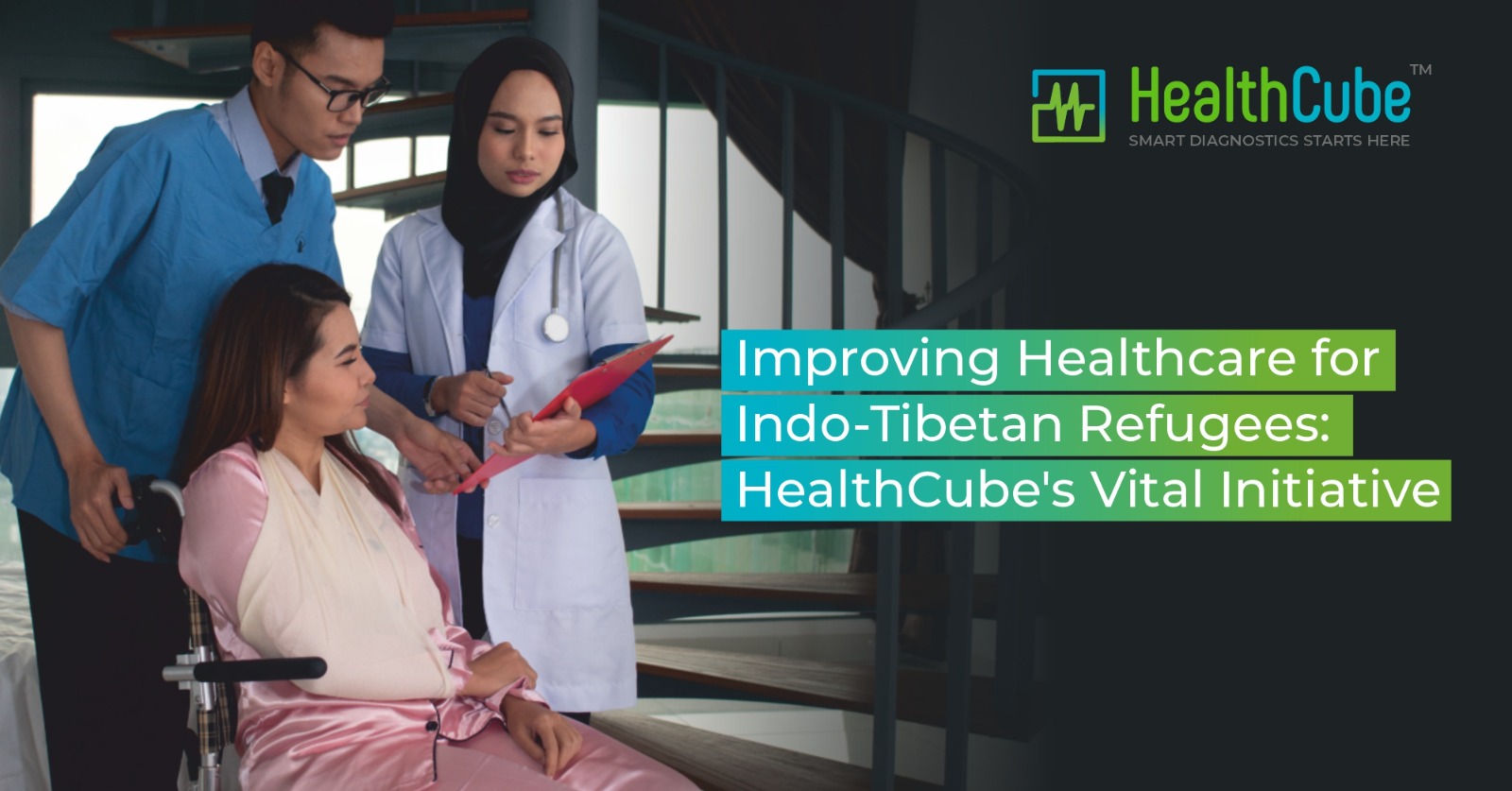In a pioneering initiative, HealthCube, a provider of point-of-care technology-enabled diagnostic screening services, facilitated periodic health monitoring for over 1 lakh Indo-Tibetan refugees. This groundbreaking project, in collaboration with the Department of Health, Central Tibetan Administration, aimed to enhance the fundamental health status of individuals residing in refugee settlements nationwide.
The initial phase of the project, conducted across 18 locations, saw a total of 4162 individuals screened. These screenings covered a wide age range, from 18 to 100 years, with females averaging 52 years and males 49 years. Key tests conducted included hemoglobin levels (78.9%), blood glucose (53.2%), and blood pressure (50.3%).
An analysis of the data revealed alarming statistics: 65.5% of females and 66.2% of males were found to be anemic. Additionally, 48.3% of individuals exhibited systolic blood pressure above 130 mm Hg, and 22.5% had diastolic blood pressure above 90 mm Hg, indicating hypertension. Moreover, 8.6% showed random blood glucose levels exceeding 200 mg/dL, necessitating further diabetes testing. Notably, age-related trends indicated heightened vulnerability to elevated blood pressure and blood glucose levels, particularly among those above 50 years old.
The initiative aimed to provide the Tibetan population with access to comprehensive primary healthcare services. HealthCube devices deployed in primary healthcare centers enable screening for various health parameters, including total cholesterol, uric acid, pulse, oxygen saturation, and 12-lead ECG. Additionally, rapid diagnostic tests for infectious diseases such as malaria, dengue, HIV, hepatitis B and C, typhoid, chikungunya, and leptospirosis are available.
Vivek Wadhwa, an American entrepreneur who supported the program financially, commended HealthCube’s commitment to delivering quality medical diagnostics to underserved populations, emphasizing the significance of the partnership with the Central Tibetan Administration in patient diagnosis and treatment.
The above findings raise few thought provoking questions like what role does early detection play in preventing the progression of a chronic disease or reduce the risk of complications? In what way the quality of lives of patients can be impacted by early detection? Can similar public-private partnerships lead to better health outcomes?
HealthCube’s overarching goal is to address the lack of access to primary health diagnostic services in rural areas and tier 3 and 4 cities through user-friendly, rapid, and cost-effective point-of-care devices. By enabling millions of individuals to undergo basic vital and biochemical parameter testing, HealthCube is contributing significantly to advancing healthcare accessibility and outcomes in India and beyond.

